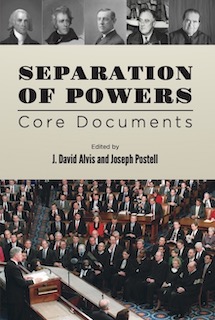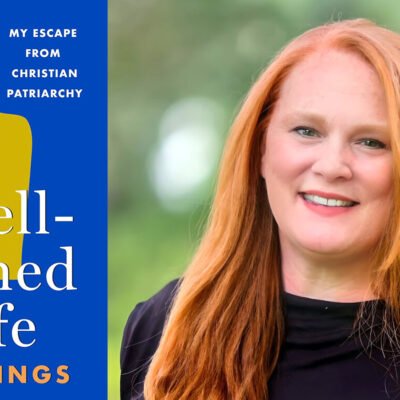During September and October, we are highlighting two newly published document collections that complete our series on governmental institutions. This month we feature Separation of Powers, edited by J. David Alvis and Joseph Postell. Next month we’ll highlight Federalism, edited by John Dinan. Today we tell the story of Win Anderson, who as a student in the MAHG program studied separation of powers under Alvis and federalism under Dinan. Anderson, who teaches government to students at Sauk Rapids-Rice High School in Minnesota, credits these professors with helping her understand the founders’ motives and mechanisms for limiting the power of government.
This imperative preoccupied delegates at the Constitutional Convention. Although they met to establish a more effective national government, all the delegates were determined to safeguard their own states’ control over their internal affairs. After this, provisions to separate and limit the legislative, executive, and judicial powers so that no one branch dominated the others dominated the discussion.
Yet these aims, once so urgently discussed, often seem novel concepts to today’s high school students. They grew up watching media that focus more often on national than state-level news. The national news portrays Congress as mired in partisan gridlock, the presidency as uniquely capable of decisive action, and the judiciary as a naysayer threatening the accomplishments of the other branches. Among other things, Anderson told us that in MAHG she learned how Progressive Era leaders caused the founders’ vision for limited government to recede from the public understanding, in part by elevating the role of the executive. “Professor Alvis’ class on the Progressive Era has helped me lead discussions regarding the struggle between policymakers of the legislative and executive branches. Professor Dinan’s course on federalism used case studies from the Progressive Era to show how states’ rights began to be deemphasized,” she said.
Win Anderson Teaches Why the Founders Wanted Limited Government

“For most of my students, the idea of federalism is a mind blower,” says Win Anderson, who teaches general level and Advanced Placement United States Government near St. Cloud, Minnesota. Most of Anderson’s students are learning in her class for the first time that the founders wanted government to be limited—and that in the United States, our federal system is one of the mechanisms that limit the power of our governments. Anderson’s studies in the Master of Arts in American History and Government (MAHG) program helped her explain to students why the founders wanted this, and how the Constitution they framed accomplishes it.
She needed effective ways of explaining key concepts like federalism and the separation of powers, since she has a limited amount of time to teach them. In Minnesota, social studies is the only core subject without a standardized test. This allows schools to squeeze the study of American history and government into fewer weeks, Anderson feels, than young citizens often need.




